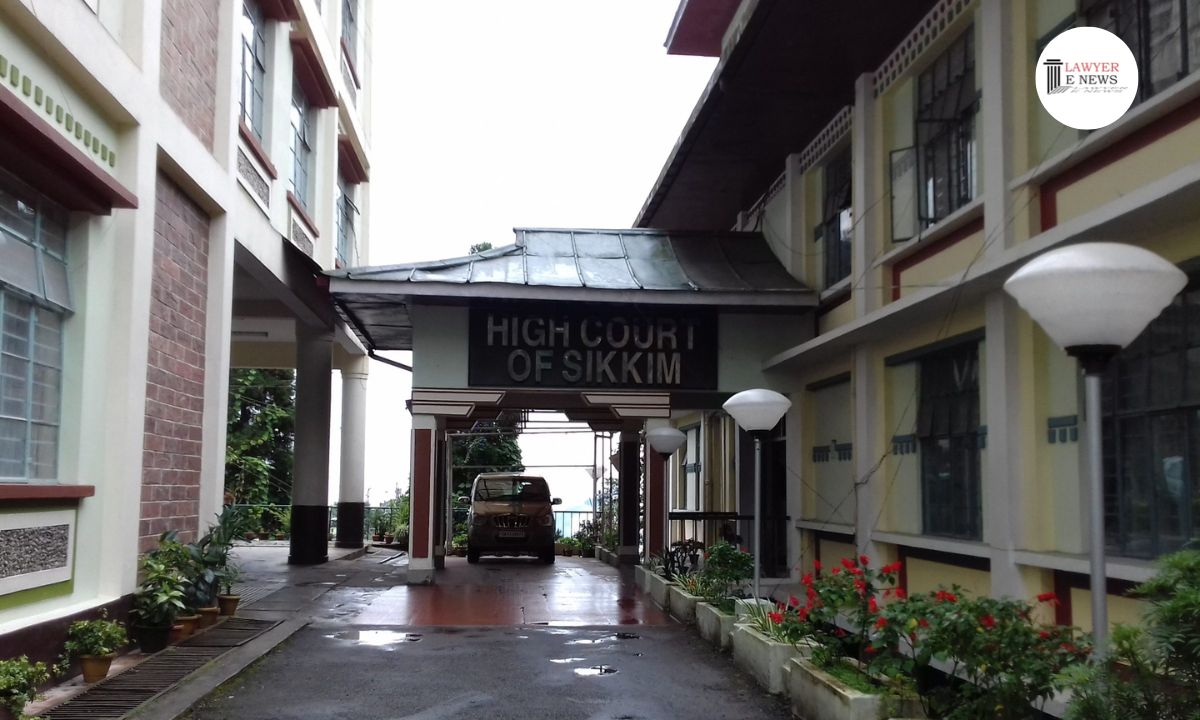-
by sayum
14 February 2026 2:22 PM



High Court of Sikkim affirms Fast Track Court’s judgment convicting Mahesh Chettri under Sections 376(2)(f), 376(2)(n), and 506 of IPC, highlighting the significance of the victim’s consistent testimony despite familial ties and threats.
The High Court of Sikkim, in a pivotal decision, upheld the conviction of Mahesh Chettri for raping his eighty-year-old maternal grandmother. Delivered by a bench comprising Justices Meenakshi Madan Rai and Bhaskar Raj Pradhan, the judgment confirms the Fast Track Court’s conviction, emphasizing the reliability of the victim’s testimony despite the delay in filing the FIR and the absence of immediate medical evidence.
The case revolves around the criminal appeal of Mahesh Chettri against his conviction by the Fast Track Court (S/W), West Sikkim, Gyalshing. Chettri was convicted under Sections 376(2)(f), 376(2)(n), and 506 of the IPC based on the testimony of seven prosecution witnesses. The appeal challenged this conviction, arguing discrepancies in the victim’s age, the delay in lodging the FIR, and the absence of medical evidence directly confirming the assault.
The court found the victim’s testimony to be credible and consistent, despite the familial relationship and threats. Justice Rai remarked, “The testimony of the prosecutrix inspires the confidence of the Court and is found reliable and trustworthy, the Court can rely on her sole testimony for convicting the accused and need not look for corroboration of her testimony elsewhere.”
The court addressed the delay in lodging the FIR, citing Supreme Court precedents that stress delays in rape cases should not be viewed as fatal to the prosecution’s case, especially given the sensitive nature and the victim’s relationship with the accused. The judgment noted, “PW-2 has stated that she was too ashamed and did not tell anyone about the incident which is absolutely understandable under the said circumstances.”
While the defense highlighted the non-seizure of the victim’s clothes and the lack of immediate medical evidence, the court ruled that these factors were not detrimental to the case. The judgment referenced the victim’s immediate bathing post-assault and the medical report indicating the possibility of sexual assault as mitigating factors.
The judgment extensively discussed the principles of evaluating evidence in rape cases, reiterating that a conviction can be sustained based on the victim’s testimony alone if deemed reliable. The court underscored, “Both PW-2 and PW-3 have lodged the report against their own grandson/son, which unless it was for genuine reasons, no grandparent or mother would have done otherwise.”
Justice Rai emphasized, “The law is well laid down today that if a Court finds that the testimony of a prosecutrix inspires the confidence of the Court and is found reliable and trustworthy, the Court can rely on her sole testimony for convicting the accused and need not look for corroboration of her testimony elsewhere.”
The High Court’s affirmation of the Fast Track Court’s conviction underscores the judiciary’s commitment to upholding justice in sexual violence cases, even amidst familial complexities and threats. This landmark decision reinforces the reliability of the victim’s testimony and the legal framework addressing sexual crimes, setting a significant precedent for future cases.
Date of Decision: 3rd July, 2024
Mahesh Chettri vs. State of Sikkim
